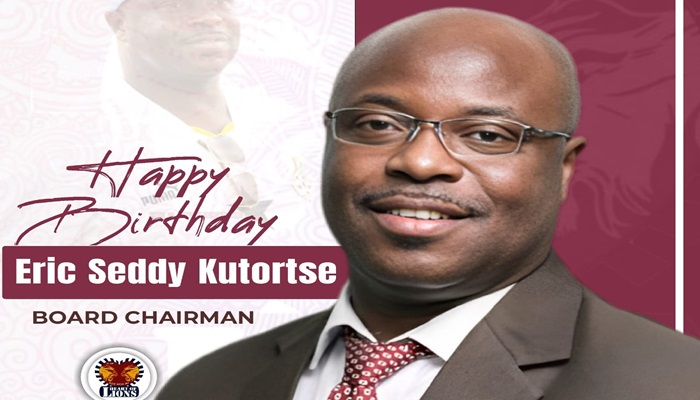First Sky Group boss calls for study of AI in SHS
He proposed a quarterly contribution of GH₵100 from each old student, envisioning the fund reaching GH₵40 million with collective support.
- Advertisement -
The Executive Chairman of First Sky Group, Mr. Eric Sedinam Kutortse, has urged the inclusion of Artificial Intelligence (AI) courses in the curricula of Senior High Schools (SHS).
Speaking at the 70th Anniversary Celebration of Kpando Secondary School, Mr Kutortse emphasized the need for students to be equipped with a profound understanding of AI to foster innovation and problem-solving in the digital age.
In his address, Mr Kutortse highlighted the rapid evolution of the era and the imperative role of AI in modern technology.
He asserted that AI not only fuels innovation but also possesses the potential to revolutionize various industries.
Encouraging students to embrace the growing trend of Information and Communication Technology (ICT), he stressed the importance of keeping pace with the evolving digital landscape.
While commending the Education Minister for pursuing the Science, Technology, Engineering, and Mathematics (STEM) Education project, Mr Mr Kutortse pledged the support of the First Sky Group to partner with the government to ensure the implementation of the digitalization policy in Kpando Secondary School.
He expressed confidence that such initiatives will solidify the country’s IT and STEM programmes.
Mr Kutortse underscored the collective responsibility of all stakeholders in the realm of education, emphasizing that quality education should be a joint effort.
Recognizing the pivotal role of teachers, he called for their adequate remuneration and motivation to ensure the molding of future generations.
Appealing to parents, Mr Kutortse urged them to create a conducive learning environment at home, emphasizing the integral role parents play as the first teachers in a child’s life.
Active involvement in children’s education, support for academic pursuits, and fostering a love for learning were emphasized as essential steps in ensuring quality education.
The executive chairman called on governments to prioritize education by allocating sufficient funds and infrastructure, creating effective policies, and ensuring equitable access to quality education.
He cautioned against basing educational policies on party manifestoes and campaign promises, advocating for a national education policy to ensure consistency across political transitions.
Kutortse also highlighted the importance of community support for education, emphasizing the need for collective investment in the future.
He urged students to play active roles in their learning process, be disciplined, and abide by school rules.
Recognizing the role of alumni, he described them as brand ambassadors and role models, capable of offering practical guidance and support to current students.
Mooting the idea of a Diamond Jubilee Commemorative Infrastructure Endowment Fund for school expansion, Mr Kutortse pledged a GH₵1 million donation as a seed fund.
He proposed a quarterly contribution of GH₵100 from each old student, envisioning the fund reaching GH₵40 million with collective support.
Mr Kutortse called on the government and development partners to assist over 19,000 pupils and students whose education has been disrupted by flooding caused by the spillage of water from the Akosombo and Kpong Dams, advocating for a comprehensive recovery plan for academic work to resume promptly.
He commended the Headmaster, Board of Governors, teachers, and all stakeholders for the school’s incredible transformations and successes, resulting in its attainment of a grade “A” status.
The Headmaster of Kpando Senior High School (KPANSEC), Charles Evans Apreku, has highlighted the urgent need for enhanced infrastructure to accommodate the growing student population and propel the school to greater heights.
Despite the school’s commendable achievements in academics, sports, and agriculture, Mr. Apreku emphasized that significant challenges, particularly in infrastructure, need immediate attention. The pressing need is an eighteen-unit classroom block to address the increasing number of students.
He noted that the current state of facilities, including the headmaster’s residential accommodation, vehicle, dormitories, assembly hall, ICT laboratory, and furniture, falls short of the school’s status and inhibits its ability to provide a conducive learning environment.
Mr. Apreku expressed concern about the infrastructure deficit, leading to some students sleeping on the floor due to insufficient dormitory space. He highlighted the academic challenges caused by the inadequate number of desks, forcing two or three students to share a mono desk during lessons.
The Headmaster passionately appealed to the government and all stakeholders to come to the aid of the school, emphasizing the importance of addressing these infrastructure gaps promptly. The suboptimal conditions not only hinder academic activities but also expose students to health risks.
Kpando Senior High School, which commenced as a community day school on January 26, 1953, with nine students and two teachers, has grown significantly.
Presently, the school boasts a student population of three thousand four hundred ninety-eight, comprising one thousand five hundred eighty-one boys and one thousand nine hundred seventeen girls.
The dedicated staff, numbering 235, includes one 147 teaching and 88 non-teaching staff members.
The appeal for urgent support echoes the school’s commitment to providing quality education and fostering an environment conducive to learning. Stakeholders and well-wishers are encouraged to respond to this call to ensure that Kpando Senior High School continues its journey of academic excellence.
Source:zedmultimedia.com
- Advertisement -
- Advertisement -


